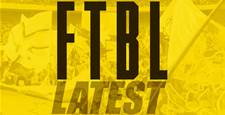Greg Alexander is renowned as one of the smartest halfbacks to have ever laced on a boot.
Over the years, with its giant nursery of juniors, the Penrith football club has been referred to as the Sleeping Giant of the game in Australia. Is it frustrating there aren’t more premierships on the honour board?
It is. Not necessarily in terms of premierships, but not being a more consistent side and not, as a club, playing semi-finals football regularly. We’ve struggled to get the right people in positions to take advantage of the size of our junior league. We’ve failed to have people in positions to get their head around just what it takes to build a strong club. I like to think we’ve got the right people in place at the moment.
I’m referring to people in coaching, talent identification; they’re the people responsible for developing juniors. We’ve been poor in those areas, no doubt. I think we’ll see that changing over the next two, three, four years and we’ll start to come back to developing our own juniors; quality kids who can come through and star for the club they’ve grown up and played their junior footy for. That’s the key to building a strong club.
How would you sum up what the game means to the people of Penrith, a traditional rugby league heartland in Sydney’s west?
I know how important the game is to the people of Penrith, but sometimes you think, “Well, is it that important?” Because crowds aren’t as good as they should be, membership isn’t as strong as it should be. Sometimes I think people in Penrith can become a bit complacent about their footy team. I know it’s easy, if you’re a borderline supporter, not to support or not to pay to go to the footy if they’re losing. That can be the key to getting more people into a stadium, of course it is – winning football games plays a big part. But you’d like to think that, you know, in a place as big as Penrith and its surrounding areas, that win, lose or draw, you’d want to be hoping in a few years’ time we could nearly fill the stadium no matter what – no matter how we’re playing.
You’d like to think we’d have 15,000 members, whereas at the moment we have half that. That’s a culture that’s been slow to develop in rugby league. It only clicked for the NRL that, “Wow, membership’s important,” a few years ago. So it’s been a slow burner for rugby league whereas AFL realised 20 years ago that membership is the key. We’re in a
fight not just among other clubs, but other sports out there, too. I think we need to show just how much we do value our footy side and to do that we need people to front up. We need people to go to the games. The crowds aren’t good enough and I can understand that ‒ because the footy’s not good, either.
Life a little too comfortable out west in front of the home entertainment system, maybe?
The penny needs to drop with our rugby league supporters that if they want their team to be strong, if they want their team to continue playing in the competition, we need healthy crowds at the footy. I’ve no doubt that down the track, the new Commission will be thinking of rationalisation, and if we’re talking expansion, they’ll be wondering whether the game can expand and still have nine Sydney clubs. I’d hope that Penrith will be one of
the strongest Sydney clubs, so if ever there’s a time in the game where they start thinking “there’s too many Sydney clubs”, Penrith would be in a strong enough position to stand on its own two feet and continue in the NRL.
We all know Phil Gould’s NRL expertise is why the Panthers put him in charge of your entire footy operations, but we’re betting his passion for the club was just as badly needed ...
“Gus” is the man. He’s overseeing everything and he does it well. You can only do that if you’re passionate in what you’re doing and who you’re doing it for and Gus certainly is.
He was originally sought-after to be involved in the coaching, as coaching director. That was his original appointment. Within three days, that went from coaching director to general manager of football. We needed someone to drive the rugby league business. Although Gus in his post-playing days – apart from working in the poker machine industry when he first retired ‒ has been a coach and a commentator, he’s such a lateral thinker and such a smart bloke that the general manager position is suiting him down to the ground. His contacts and his ability to open doors in the business world, his knowledge of the game is important, but his mantra since he’s been here is to have a look at all the operations of rugby league and work on what we need and what’s not working. That’s from junior development right through to major sponsorship.
Related Articles

Viva Las Vegas: Join Golf Australia magazine's Matt Cleary on a golf and rugby league spectacular
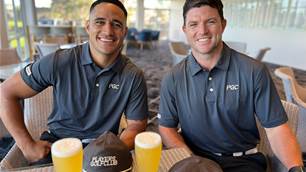
19 Holes With ... Chad Townsend and Val Holmes
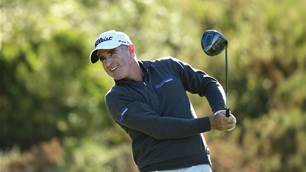
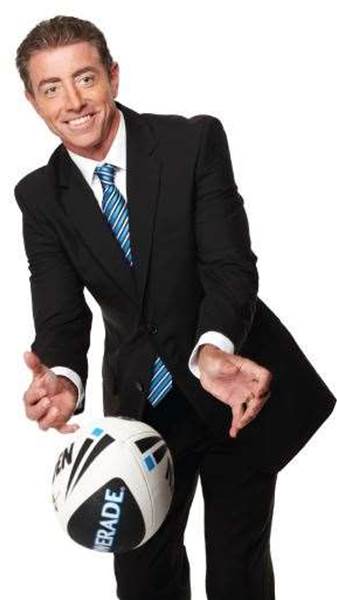
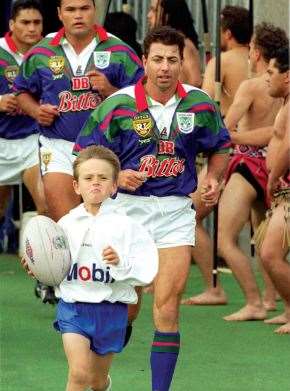
.png&h=115&w=225&c=1&s=1)



